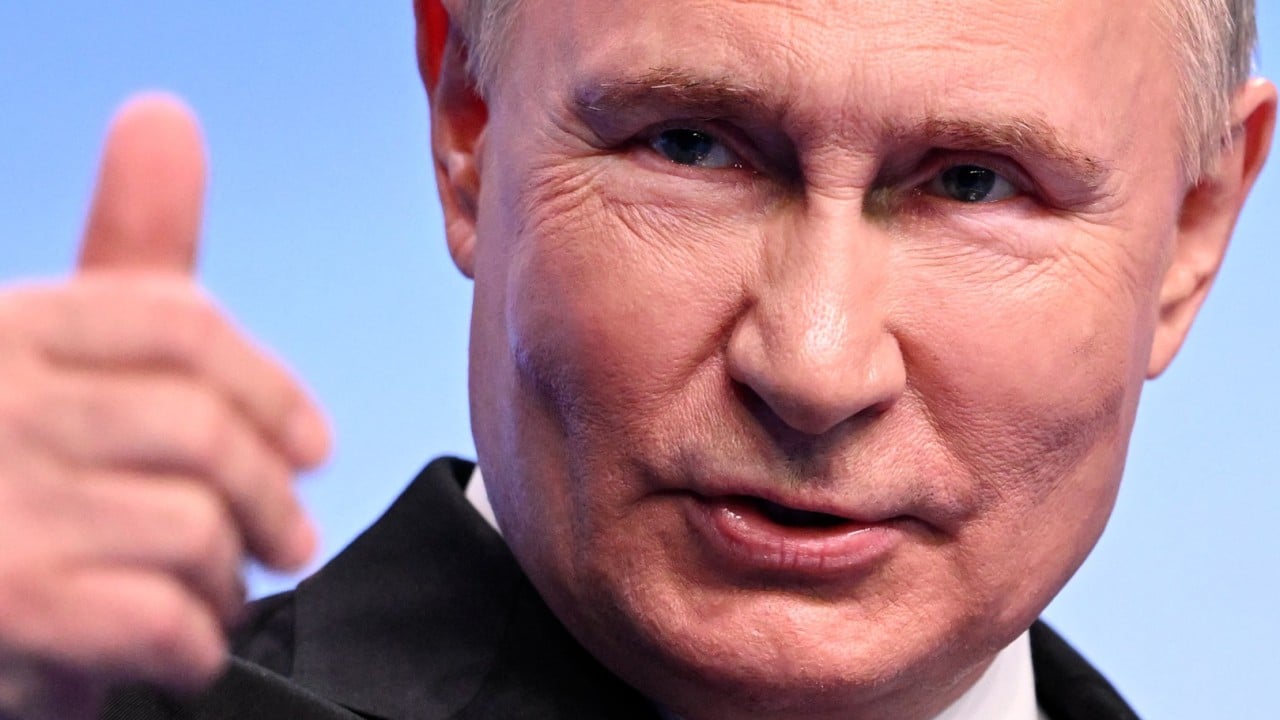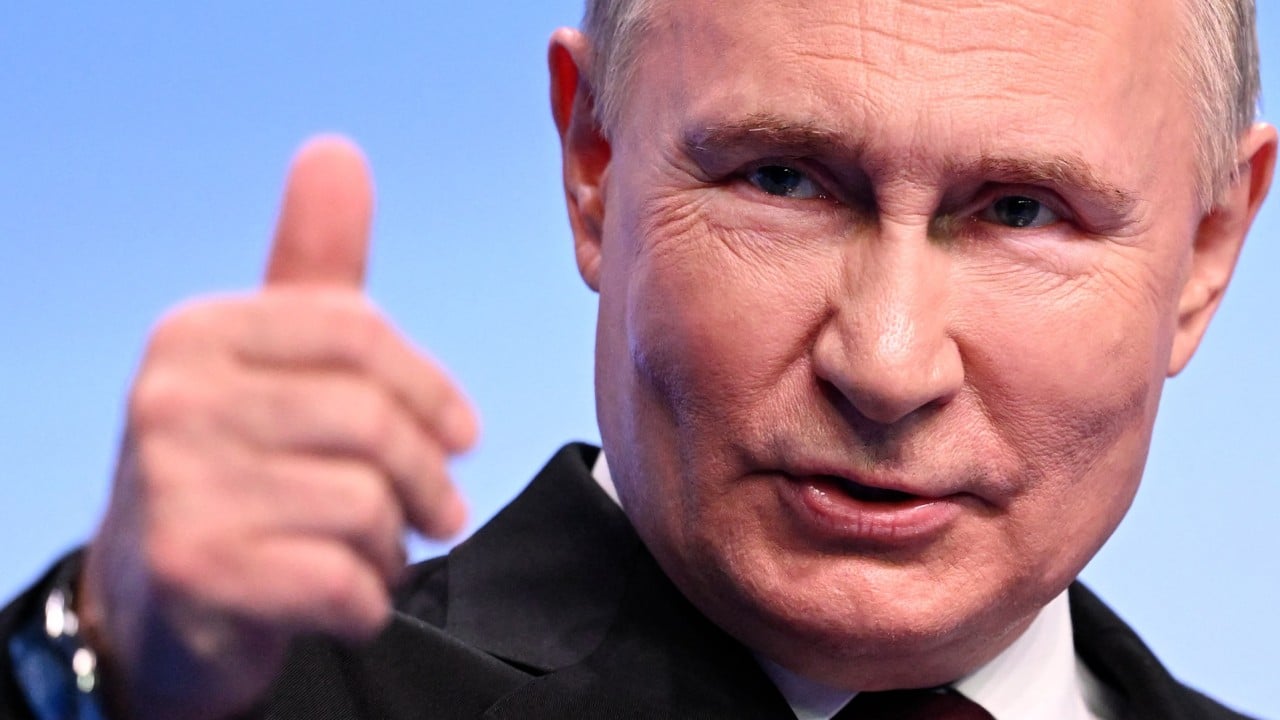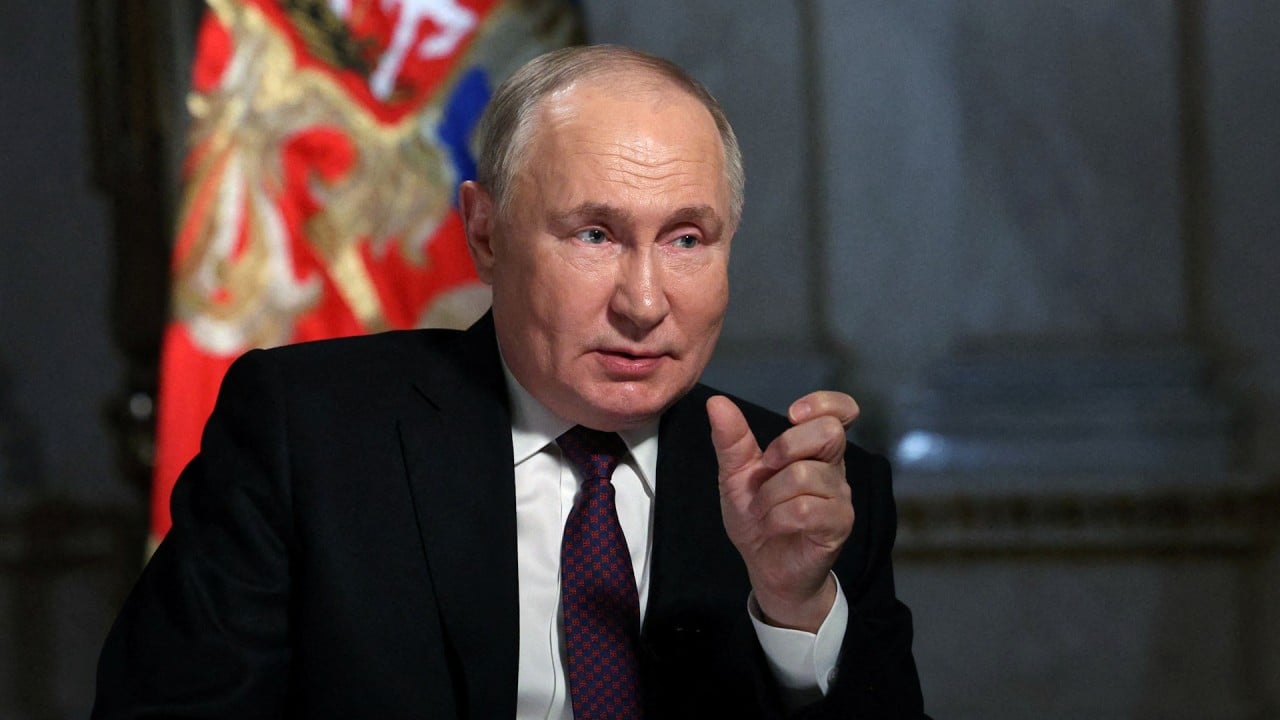Russian ultranationalist Aleksandr Dugin hit by backlash on Chinese social media after defending Ukraine invasion
The ultranationalist Russian political philosopher Aleksandr Dugin has been hit with a backlash from Chinese social media users after joining the popular platform Weibo to defend the invasion of Ukraine.
The former Moscow State University professor – who has switched from a fiercely anti-Chinese stance to a pro-Beijing one – published a 3½-minute video on the platform on Monday, gaining around 52,000 followers by Wednesday afternoon.
“Nihao [hello], dear Chinese friends,” Dugin said at the beginning of the video, which was apparently filmed in his study.
Behind him was a photo of his daughter Darya, who was killed in a car bomb near Moscow in September 2022, an attack that is still shrouded in mystery.
Speaking in Russian, with Chinese subtitles, he praised China’s development saying it has “not only changed the world’s economic landscape, but has also demonstrated strong vitality in many fields such as culture and science and technology”.
“All these make me feel that communication with China is very important,” Dugin added.
He quickly turned to Russia’s war in Ukraine, saying that the “very passionate and in-depth” discussions on the Chinese internet had drawn his attention. He also hit back at a commentary by “a Chinese ‘Russian expert’” published in The Economist.
Dugin did not name the target of his criticism, but Feng Yujun, a professor from Peking University, published an essay in The Economist last month arguing Russia’s defeat was “inevitable”.
Feng cited various factors, including the national unity shown by Ukrainians, international support for Ukraine, Russia’s dramatic deindustrialisation and the demands of modern warfare.
In the article, Feng also questioned whether Russia’s nuclear capability would be a guarantee of success and said Vladimir Putin, who was sworn in on Tuesday for another term as president, would face “all kinds of possible black-swan events” because of “very high” political risks in Russia.
For the sake of Sino-Russian friendship … please return the Kuril Islands and Vladivostok
In the video published on Monday, Dugin, a co-founder of the National Bolshevik Party, said Russia’s “resilience and fortitude is far greater than the outside world can imagine”, adding that the Russian people would never back down.
“In this regard, I deeply feel the need to convey to you some of the real situation in Russia,” he said.
Dugin also said Russia and China should unite “to meet the challenges of Western imperialism, as well as neoliberalism”, adding: “Because the future belongs to us. They belong to the past after all.”
Dugin has sometimes been described in the West as “Putin’s brain” although there is a considerable scepticism about whether he has any real influence over the Kremlin’s thinking.
In the late 1990s he claimed that China was “the most dangerous geopolitical neighbour of Russia to the south”, who must “to the maximum degree possible, be dismantled”.
But more recently he has warmed to China, calling for a united front between Moscow and Beijing in the face of challenges from the West.
The video got 46,000 likes by Wednesday afternoon, but many of the comments were critical.
“The aggressors will definitely lose,” said one comment by a Xinjiang-based user, who received nearly 2,600 likes.
Putin and some of his supporters have justified the war in Ukraine by citing history, but some of the comments under Dugin’s post reminded him of Russian imperialist expansion – particularly the Tsarist annexation of territory in the late 19th century after China’s defeat in the second opium war.
Those territories now form part of Russia’s Far Eastern Federal District, but one user gained more than 1,800 likes by urging Dugin: “For the sake of Sino-Russian friendship for generations to come, please return the Kuril Islands and Vladivostok.”




